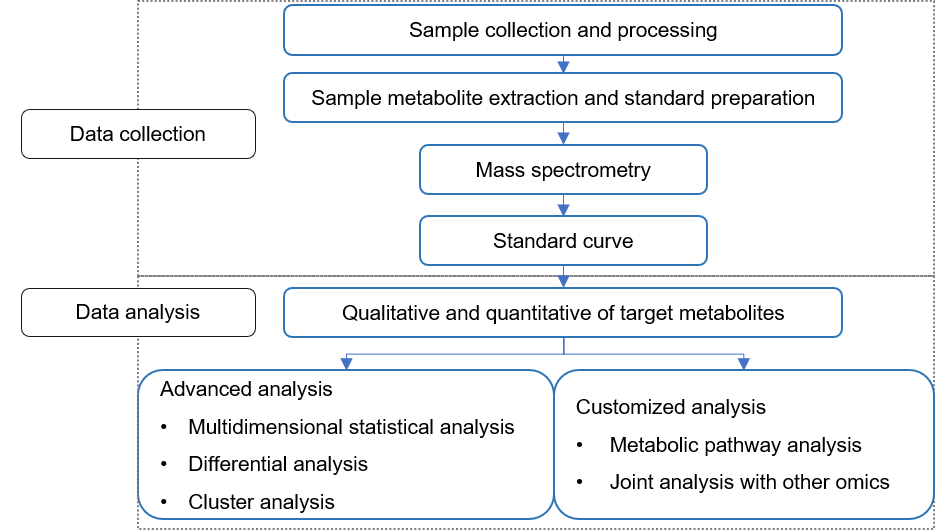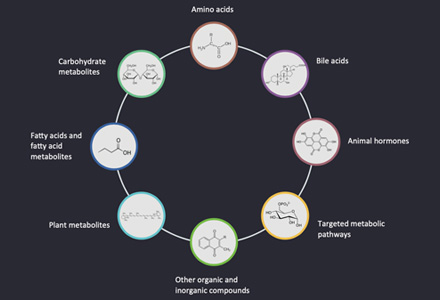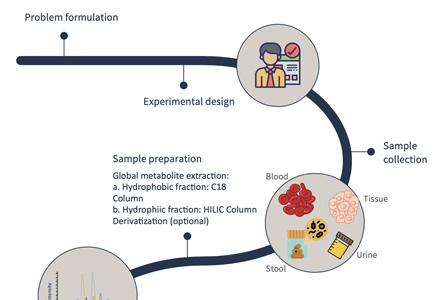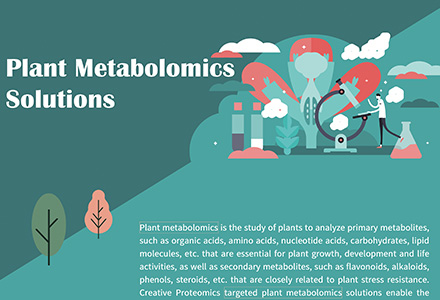Sulforaphane Analysis Service
Submit Your InquirySulforaphane (SFN) is an isothiocyanate compound obtained from the enzymatic digestion of carrot sulfur glycosides in broccoli by black mustard enzyme. It is mostly found in cruciferous vegetables, such as broccoli, cabbage, cauliflower, Brussels sprouts, cabbage, collard greens, kale, collard greens, mustard greens, bean greens, etc.
Sulforaphane has inhibitory effects on a variety of cancers, including breast, prostate, lung, bladder and colon cancers. Sulforaphane is the most potent anticancer activity of the known isothiocyanates1 and exerts oncogenic effects at multiple stages of tumorigenesis, making it a potential oncotherapeutic agent.
Sulforaphane is an Nrf2 signaling pathway activator. It can prevent oxidative stress injury and the resulting cardiovascular diseases. Sulforaphane resists chronic inflammatory responses, reduces cytokines and inflammatory mediators in the peritoneal fluid and plasma of patients with endometriosis, and promotes apoptosis of inflammatory cells. Sulforaphane also attenuates liver fibrosis at the transcriptional level and has risk-reducing effects on cardiovascular disease, osteoporosis and autism.
In order to explore the mechanism of action of sulforaphane and better develop the application of sulforaphane in medicine and health food, qualitative and quantitative analysis of sulforaphane is essential. Creative Proteomics has established LC-MS/MS and GC-MS analytical methods, which can provide you with accurate and efficient sulforaphane detection services.
 Structure of sulforaphane
Structure of sulforaphane
Detection Platform
- LC-MS/MS
- GC-MS
Waters ACQUITY UPLC, MS-SCIEX QTRAP 4500/5500/6500
Agilent 7890B-5977A, Thermo TRACE 1300-TSQ 9000
Technical Advantages
- Method specificity
- High quantitative accuracy
- High sensitivity
Method setting and optimization are only performed for specific target metabolites.
The basis of quantification is based on the standard curve corresponding to strict standards.
The sensitivity can reach pg level, and it can accurately quantify low-abundance metabolites.
Application Field
- Accurate quantification of sulforaphane
- Validate hypotheses proposed by untargeted metabolomics or other omics
- Research metabolic models for sulforaphane
Technical Workflow of Targeted Metabolomics of Sulforaphane

Sample Preparation Suggestions
| Sample type | Suggested sample quantity (per case) | Number of repetitions (recommended) |
|---|---|---|
| Plant tissue | ≥ 1g | ≥ 6 |
| Animal and clinical tissues | ≥ 200 mg | ≥ 10 |
| Serum, plasma | ≥ 500 μl | ≥ 6 |
| Urine | ≥ 200 μl | ≥ 6 |
| Stool, intestinal contents | ≥ 200 mg | ≥ 6 |
| Cell | ≥ 107 | ≥ 6 |
| Microorganism | ≥ 107 or ≥100 mg | ≥ 6 |
| Culture broth, fermentation broth | ≥ 1 ml | ≥ 6 |
Samples are stored in liquid nitrogen or -80°C and shipped on dry ice.
Feedback to Customers
Creative Proteomics will provide you with detailed technical reports, including
- Experimental steps
- Related mass spectrometry parameters
- Part of the mass spectrum picture
- Raw data
- Quantitative results of targeted metabolites
Project Cycle
- A standard experimental procedure takes about 1 ~ 4 weeks.
Creative Proteomics has leading technology, first-class R&D and production equipment, and has established a complete metabolome service system. Our professional team has many years of experience in metabolomics, bioinformatics, and statistics, and can help you plan, conduct and report metabolomics research, so that your upstream and downstream experiments can be seamlessly connected. We can provide a wide range of target metabolomics services, including target metabolic pathways, target metabolite analysis, etc. You can also perform personalized customization services at the same time during the data analysis stage. If you have any questions or specific requirements, please feel free to contact us.





